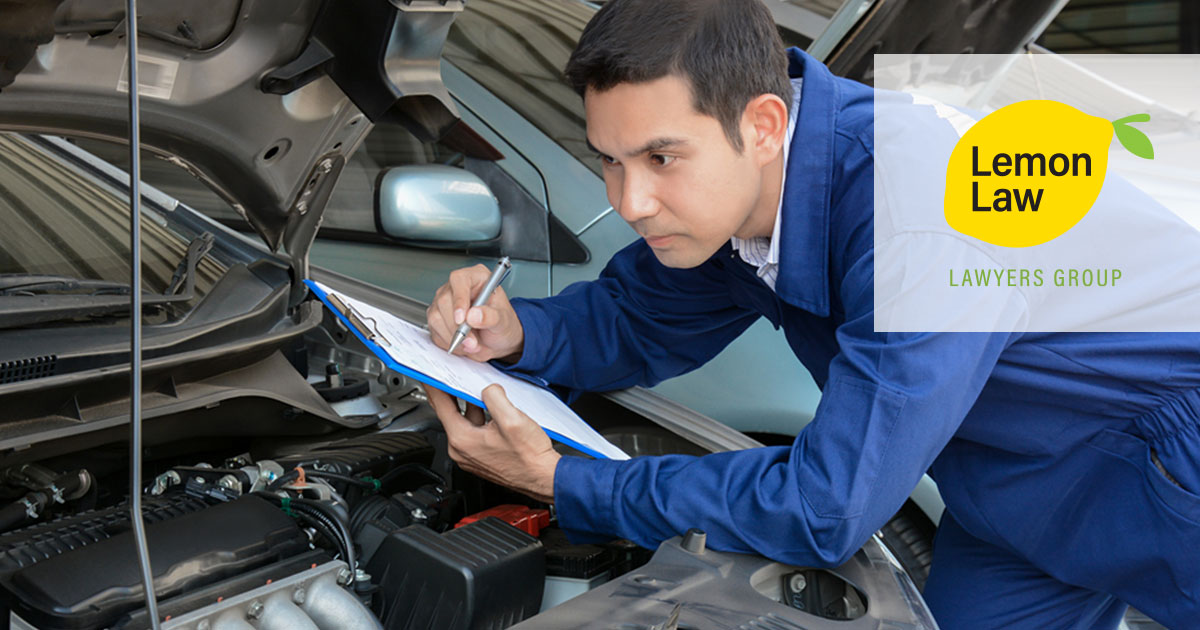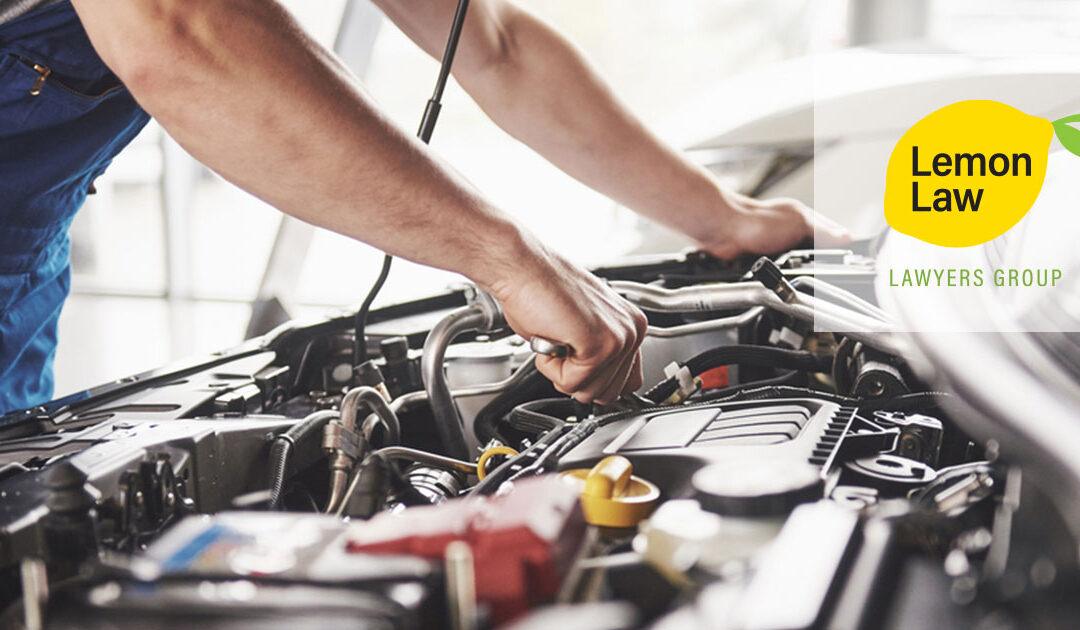
Introduction: Discovering that your newly purchased vehicle is a lemon can be a frustrating and disappointing experience. Fortunately, California lemon laws provide consumers with legal protections and remedies in such situations. If your vehicle qualifies as a lemon and the manufacturer buys it back, you may wonder what happens next. As a California lemon law lawyer, I’ve guided numerous clients through this process and witnessed firsthand what happens to their cars after repurchase. In this article, I’ll provide insights into the post-buyback journey of lemon vehicles, shedding light on what consumers can expect once their defective vehicles are returned to the manufacturer.
Inspection and Evaluation: After the manufacturer repurchases a lemon vehicle from a consumer, the first step in the post-buyback process typically involves a thorough inspection and evaluation of the vehicle. Manufacturers may conduct these inspections themselves or hire third-party inspectors to assess the condition of the vehicle and determine its next course of action.
During the inspection, technicians will carefully examine the vehicle for any defects, damage, or issues that may have contributed to its lemon status. They’ll review repair records, diagnostic tests, and any documentation provided by the consumer to understand the history of the vehicle’s problems and previous repair attempts.
Based on the findings of the inspection, manufacturers will determine whether the vehicle can be salvaged, repaired, or refurbished for resale, or if it should be scrapped for parts or sent to a salvage yard. The decision will depend on various factors, including the severity of the defects, the cost of repairs, and the overall condition of the vehicle.
Salvage or Scrap: In some cases, lemon vehicles may be deemed irreparable or not economically feasible to repair. If the defects are severe or widespread, or if the cost of repairs exceeds the value of the vehicle, manufacturers may opt to salvage or scrap the vehicle.
Salvaging involves dismantling the vehicle and salvaging usable parts and components for resale or reuse in other vehicles. Salvage yards may purchase salvaged parts from manufacturers or auction them off to repair shops, mechanics, or consumers looking for affordable replacement parts.
Alternatively, if the vehicle is in poor condition or has extensive damage, manufacturers may choose to scrap the vehicle entirely. Scrap yards will then dismantle the vehicle and recycle its metal, plastic, and other materials for use in manufacturing new products or components.
Refurbishment and Resale: In cases where the defects are minor or repairable, manufacturers may opt to refurbish the vehicle and prepare it for resale. Refurbishment involves repairing or replacing defective components, addressing any cosmetic issues, and ensuring that the vehicle meets safety and quality standards before being resold to consumers.
During the refurbishment process, technicians will conduct necessary repairs, perform maintenance tasks, and conduct quality inspections to verify that the vehicle is safe, reliable, and free of defects. They may also address any outstanding recalls or safety-related issues to ensure compliance with regulatory requirements.
Manufacturers may then choose to sell the refurbished lemon vehicles but they must be sold with a branded title notifying the next consumer that the vehicle was bought back for being a “lemon”, see below. These vehicles may be offered for sale through auctions, used car dealerships, manufacturer-owned outlets, or online platforms, providing consumers with an opportunity to purchase a previously lemon vehicle at a discounted price.
Disclosure Requirements: Under California lemon laws and consumer protection regulations, manufacturers are required to disclose the lemon history of vehicles that have been repurchased due to defects. This means that any vehicle that has been repurchased as a lemon must be labeled as such and have its lemon status clearly indicated on its title and vehicle history report.
Additionally, manufacturers are prohibited from selling lemon vehicles as new or certified pre-owned (CPO) vehicles without disclosing their lemon history to potential buyers. Failure to disclose a vehicle’s lemon status can result in legal consequences for manufacturers, including fines, penalties, and potential litigation from aggrieved consumers.
Consumer Options After Buyback: Once a manufacturer repurchases a lemon vehicle from a consumer, the consumer has several options for moving forward. Depending on their preferences and circumstances, consumers may choose to:
1. Purchase or Lease a Replacement Vehicle: Some consumers may opt to use the proceeds from the buyback to purchase or lease a replacement vehicle from the same manufacturer or a different dealership. By choosing a different make or model, consumers can avoid the risk of experiencing similar issues and enjoy a fresh start with a reliable vehicle.
2. Seek Legal Assistance: If the manufacturer fails to repurchase the vehicle or provide a satisfactory resolution, consumers may seek legal assistance from a qualified lemon law attorney. An attorney can help consumers understand their rights under the law, negotiate with the manufacturer on their behalf, and pursue legal remedies such as a refund, replacement vehicle, or cash compensation.
3. Explore Other Remedies: In addition to lemon law protections, consumers may have other legal remedies available to them, depending on the circumstances of their case. For example, consumers may have grounds for a fraud claim or violation of other consumer protection laws, which can provide additional avenues for relief.
Conclusion: When a manufacturer buys back a lemon vehicle, the post-buyback process involves inspection, evaluation, and disposition of the vehicle based on its condition and the severity of its defects. Lemon vehicles may be salvaged, scrapped, refurbished, and resold to consumers, with its lemon status disclosed to potential buyers. Consumers have options for moving forward after a buyback, including purchasing or leasing a replacement vehicle, seeking legal assistance, or exploring other legal remedies. By understanding the post-buyback process and their rights under the law, consumers can navigate the lemon law process with confidence and pursue a satisfactory resolution to their lemon vehicle issues.
Lemon Law Lawyers Group
32605 Temecula Parkway
Suite 101, Temecula, CA 92592
Phone: (951) 324-4111
Fax: (951) 602-6520
[email protected]
Contact Us
Send message
Live chat
Schedule meeting
Disclaimer
The founder and owner of Lemon Law Lawyers Group, Inc. is Erika N. Kavicky, State Bar No. 225052. This website does not create an attorney client relationship nor does it provide legal advice. Any results posted on the website are not guarantees, warranties, or predictions on how your case may turn out. This website is intended for legal advertisement as allowable by the California State Bar.

To Buy or Not to Buy: Understanding Service Contracts When Purchasing a New Car
Introduction: Purchasing a new car is an exciting experience, but it can also come with its fair share of decisions and considerations. One such decision often presented to buyers is whether or not to invest in a service contract offered by the dealer. As a California...

Understanding the Importance of Giving Manufacturers a Reasonable Number of Repair Opportunities for Your New Car Under Warranty
Introduction: Purchasing a new car is an exciting milestone for many consumers. However, when a new vehicle experiences persistent issues or defects, it can quickly turn into a frustrating and disappointing experience. Fortunately, consumers in California are...

Choosing a Lemon-Proof Car: Insights from a California Lemon Law Lawyer
Introduction: The prospect of buying a new car is both thrilling and daunting. On one hand, you're excited about the possibilities of hitting the road in a shiny, reliable vehicle. On the other hand, there's always that nagging worry: What if I end up with a lemon? As...

Can I Lemon My Car and Still Keep It? Understanding Your Options from a California Lemon Law Lawyer’s Perspective
Introduction: Discovering that your newly purchased car is a lemon can be a frustrating and stressful experience. Fortunately, California lemon laws provide consumers with legal protections and remedies in such situations. But what if you want to keep your car despite...